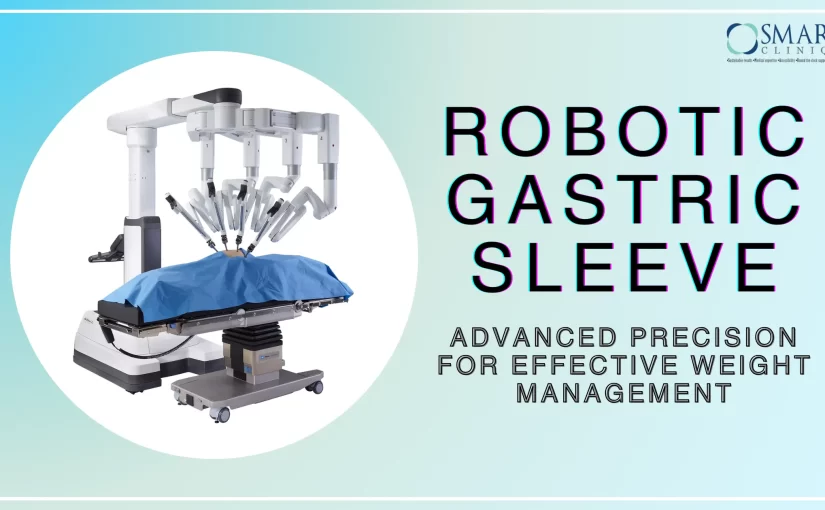Quinoa and Brown Rice Bowl: The Perfect Fiber Boost After Bariatric Surgery
After undergoing bariatric surgery, patients embark on a transformative journey – a journey towards better health and holistic well-being. A crucial aspect of this recovery process is ensuring adequate fiber intake. Fiber, essential for digestive health, helps prevent constipation, promotes satiety, and supports healthy weight loss.
Among fiber-rich foods, quinoa and brown rice present an excellent pick for bariatric patients. These powerful grains not only meet your fiber needs but are also packed with vital nutrients that contribute to overall wellness.
The Fiber Factor: Why It’s Essential Post-Surgery
Bariatric surgery is a life-changing procedure for individuals seeking significant and sustainable weight loss. However, post-surgery dietary adjustments are critical to ensure long-term success and health. Among the key nutrients to prioritize after surgery is fiber-rich diets, which offer many benefits for patients on their recovery and maintenance journey.
Promotes Digestive Health
After the procedure, patients often experience changes in their digestive system, which can lead to issues like constipation and nutrient malabsorption. Fiber-rich diet intake after bariatric surgery helps alleviate these concerns in maintaining regular bowel movements.
Enhances Satiety
After surgery, the stomach’s reduced size means patients need to focus on the intake of fiber-rich diets. Fiber helps by slowing digestion, promoting a feeling of fullness, and reducing the likelihood of overeating.
Regulates Blood Sugar Levels
Bariatric patients are at risk of developing reactive hypoglycemia or dumping syndrome due to rapid sugar absorption. Fiber, especially soluble types found in oats, beans, and fruits like apples, helps slow the absorption of sugars into the bloodstream, preventing spikes and crashes in blood sugar levels.
Supports Heart Health
Many individuals undergoing bariatric surgery have a history of conditions like high cholesterol or hypertension. Fiber helps reduce LDL (“bad”) cholesterol levels and supports overall cardiovascular health, reducing the risk of complications post-surgery.
Aids in Weight Management
Fiber-rich diets are generally lower in calories and more filling, making them excellent choices for maintaining weight loss. By incorporating fiber, patients can create balanced meals that support their long-term weight goals.
This is where quinoa and brown rice come into play. These grains can be easily blended into various meals and serve as fantastic sources of dietary fiber. This helps individuals maintain their health while adhering to specific post-surgery dietary guidelines.
Why Quinoa and Brown Rice Should Be a Go-To for Bariatric Patients
Nutritional Composition of Quinoa and Brown Rice
Quinoa is a complete protein with all nine essential amino acids, offering 8g of protein and fiber per cooked cup, along with magnesium, iron, and B vitamins.
Brown rice provides complex carbs, 3.5g of fiber per cooked cup, and key nutrients like selenium and manganese for antioxidant defense and bone health. Post-bariatric surgery, these nutrient-dense grains help address nutritional deficiencies and support recovery.
Benefits of Quinoa and Brown Rice
- Both are fiber-rich grains that aid in digestion and help maintain a feeling of fullness, supporting long-term weight loss.
- Their low glycemic index helps facilitate a slower release of glucose into the bloodstream, stabilizing energy levels and preventing spikes in blood sugar levels.
Moreover, these grains provide lasting energy, making them an excellent choice for individuals adjusting to a modified lifestyle post-bariatric surgery. They are versatile, in nature, allowing for endless combinations with vegetables and proteins. This is a crucial aspect as it helps meet the diverse nutritional needs of bariatric patients.
Recipe for the Perfect Quinoa & Brown Rice Vegetable Bowl
Preparing a quinoa brown rice vegetable is an effortless and flavorsome process to increase fiber intake. Here’s a simple guide to creating the perfect quinoa and brown rice fiber-rich veggie bowl:
Ingredients:
- I Cup Cooked Quinoa
- 1 Cup Cooked Brown Rice
- 1 Cup Mixed Vegetables (Bell Peppers, Zucchini, Spinach, Broccoli)
- Protein Source (Grilled Chicken, Tofu, or Chickpeas)
- Toppings (Avocado, Cherry Tomatoes, Seeds, or Nuts)
Cooking Instructions:
Step 1 – Prepare the grains
Cook quinoa and brown rice according to package instructions. A 2:1 water-to-grain ratio works well.
Step 2 – Sauté the vegetables
In a pan, sauté your chosen vegetables in a small amount of olive oil until tender. This adds flavor without excess calories.
Step 3 – Add protein
Add your protein source into the pan until heated through. For vegetarians, chickpeas or tofu are great options.
Step 4 – Assemble the bowl
In a serving bowl, combine the cooked quinoa and brown rice. Top with the sautéed vegetables and protein.
Step 5 – Garnish
Add avocado slices, cherry tomatoes, and a sprinkle of seeds or nuts for an extra crunch.
The meal, easy-to-prepare and customizable, makes it popular among the patients as they can adapt it to their personal preferences and nutritional guidelines.
Fiber Feast: Essential Ingredients for the Perfect Healthy Bowl
To make your bowl more enriching and nourishing, consider adding high-fiber foods such as:
- Chia Seeds: Packed with omega-3 fatty acids and fiber, just one ounce contains about 11 grams of fiber.
- Legumes: Lentils and black beans are great additions, offering around 15 grams of fiber per medium-cooked cup.
- Avocado: This creamy fruit not only adds flavor but also provides nearly 10 grams of fiber per medium avocado.
- Flaxseeds: Ground flaxseeds add a nutty flavor and 3 grams of fiber per tablespoon.
Including these ingredients not only boosts the nutritional value of your bowl but also enhances the overall taste and texture of your meal, making it both delicious and beneficial for digestive health.
How To Take Your Fiber-Fueled Journey to Your Post-Bariatric Plate
Increasing fiber intake after bariatric surgery should be a gradual process in order to prevent digestive discomfort. Here are some tips:
- Start Slowly – Introduce fiber-rich foods gradually into your diet, so that your digestive system can adjust. Begin with small portions of quinoa and brown rice.
- Stay Hydrated – Drinking plenty of water is essential when increasing fiber intake. It helps to soften stool and prevent constipation.
- Focus on Soft Foods – Initially, choose softer fiber sources that are easier to digest, such as cooked vegetables and grains.
- Listen to Your Body – Pay attention to how your body responds to the modified diet. If you experience discomfort, slow down the intake of fiber-rich foods.
- Make it Delicious – Add flavors and textures that you enjoy, making meals more appetizing. A tasty quinoa and brown rice bowl can be a satisfying and nutritious option.
By following these tips, patients can safely and substantially increase their fiber intake and better their digestive health post-surgery.
Choosing the Right Bariatric Nutritionist/Dietician in Delhi
Consulting a qualified bariatric nutritionist in Delhi must be next on your list. For a bariatric patient, post-surgery care is of utmost importance. And, to ensure that a well-planned and nutritionally balanced diet is followed by the patient, consulting the right bariatric nutritionist is crucial.
A specialized nutritionist can provide personalized meal plans that accommodate individual health needs and preferences. When choosing a bariatric dietician, consider the following factors:
- Experience – Find a nutritionist with specific expertise in post-bariatric surgery care. They must have a knowledge of the unique dietary challenges that patients often face.
- Personalized Plans – Ensure that the nutritionist guides and creates personalized meal plans that take into account your lifestyle, preferences, and nutritional goals.
- Success Stories – Check for testimonials from other patients who have successfully navigated their recovery with the help of the nutritionist.
Seeking professional guidance not only optimizes the post-surgery recovery process but also enhances long-term health and well-being, making it a worthwhile investment.
Meet Dr. Beena Arora – Expert Dietician in Delhi
Dr. Beena Arora, with over two decades of experience, has worked with reputed hospitals and academic institutions and is the Chief Dietician at the Department of Bariatric, Minimal Access, and Robotic Surgery.
She holds a Ph. D in Food and Nutrition from the University of Delhi. She is a renowned dietician in Delhi, specializing in post-bariatric nutrition. Dr. Arora is dedicated to helping patients achieve their health goals through personalized meal planning and nutritional education.
Her approach blends empathy with scientific expertise, offering personalized support for each patient throughout their recovery journey. Countless success stories from her patients highlight the invaluable guidance she offers in helping them maintain a healthy lifestyle post-surgery.
Conclusion
Integrating a quinoa and brown rice bowl into your bariatric-friendly diet offers a flavorful and nutritious way to support your recovery. Packed with fiber and essential nutrients, this easy-to-make meal promotes healthy digestion and helps maintain weight loss, empowering you to stay on track with your health goals after surgery.
References
- https://www.mayoclinic.org/healthy-lifestyle/nutrition-and-healthy-eating/expert-answers/fiber/faq-20058500
- https://health.clevelandclinic.org/fiber
- https://www.hsph.harvard.edu/nutritionsource/carbohydrates/
- https://asmbs.org/resources/nutrition-after-bariatric-surgery
- https://www.niddk.nih.gov/health-information/weight-management/bariatric-surgery/eating-after-surgery
- https://www.healthline.com/nutrition/8-health-benefits-quinoa#nutrients
- https://www.healthline.com/nutrition/is-brown-rice-good-for-you#:~:text=For%20example%2C%20one%20cup%20(158,fewer%20calories%20overall%20(%2012%20)









